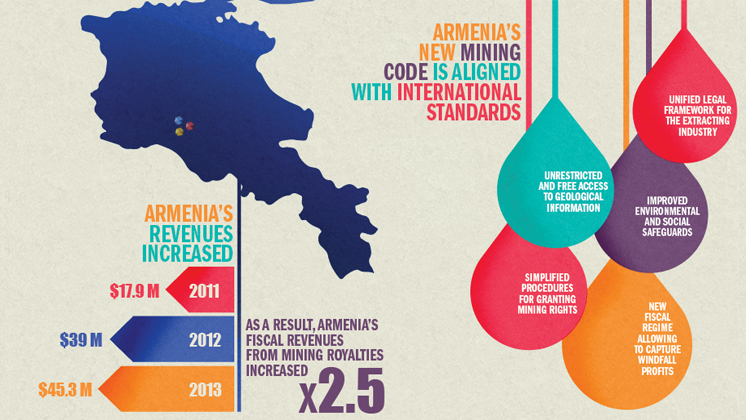 If I had to pick one critical source of exports and a key driver of economic growth for Armenia, I would pick mining.
If I had to pick one critical source of exports and a key driver of economic growth for Armenia, I would pick mining.
But mining is a risky business and is fraught with hurdles. Exploration often comes up empty. Investments are very large, in excess of hundreds of millions dollars. Commodity prices can change dramatically and governments can change policies and taxes. Moreover, there can be large environmental and social risks associated with things like tailings, dams, and resettlement policies.
A risky business does not, however, mean that mining is or should be an irresponsible business. Many of these risks can be mitigated or eliminated. This requires proper policies, laws, regulations, careful implementation, and planning for life when the mine closes – all of this even before the mine opens. Supporting policies, such as easy access to updated geological information and predictability in transferring licenses, reduce the risk in exploration.
Investment risks can be mitigated by governments and companies working together to lower infrastructure costs, in a way that also benefits other producers and consumers. Policy stability and predictability also greatly reduce risks by allowing all the stakeholders to work within known parameters.
Environmental performance of industrial mines is another matter of concern. The instruments to reduce these risks should include much stricter mining codes, financial assurances for reclamation or environmental damage by mining companies, modern technologies, and robust monitoring and evaluation systems.
Mitigating social risks is also a priority, given the impact of mining on communities and the need to ensure equitable benefits besides direct employment.
Strong laws and regulations are often not enough to mitigate all these risks. Governments must also increase their regulatory capacity and technical competency. Finally, when there are disputes about risks, including who should bear them, it is important to have strong dispute resolution mechanisms or institutions that are accessible to all.
In the end of March, for the first time, government officials, local authorities, community leaders, mining companies, and civil society organizations have discussed the best practices of responsible mining in Armenia. The conference provided an opportunity to review Armenia’s practices through the lens of international experience.
Over the past few years, the World Bank has supported Armenia in developing a new mining code aligned with international standards. Major changes were introduced in the fiscal regime. As a result, fiscal revenues from mining royalties reached US$39 million in 2012 and US$45.3 million in 2013, thanks also to favorable commodity prices. In 2011, these royalties were only US$17.9 million under the old taxation regime.
The Bank is also supporting the government in developing another critical legislation - the Law on Environmental Impact Assessment. This new legal framework has already attracted new investors, including the IFC. The World Bank Group looks forward to expanding this partnership.
The discussion in this conference, while productive, should not be an end in itself. My hope is that it will trigger a permanent consultative process among stakeholders. Consequently, I would recommend establishing a Chamber of Mines to formalize and institutionalize this dialogue.


Join the Conversation